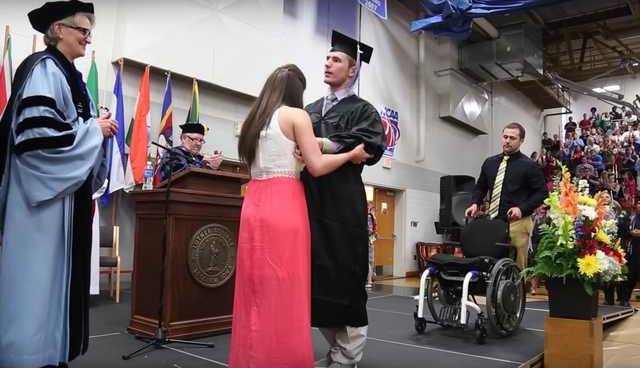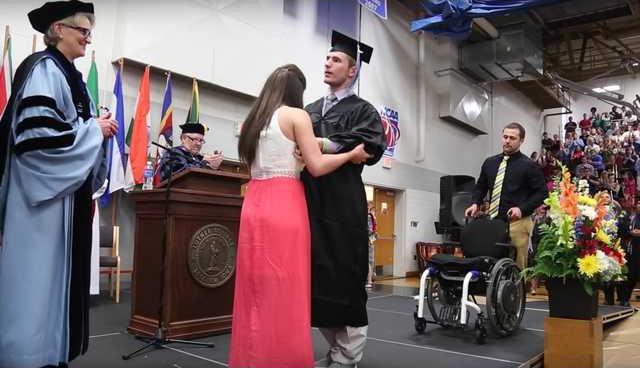Chris Norton injured his spinal cord while playing football in 2010, but despite doctors giving him a 3 percent chance of regaining any movement from the neck down, Norton pushed forward.
A video from his college graduation, which appears to have taken place in 2014, went viral on Wednesday after being shared by several large Facebook accounts.
In a comment on a Facebook post of the video, Norton said At that moment I was forced to make the choice to either give up and let my life be determined by my circumstances or fight and create something positive out of my circumstances! I believed that I could turn that tragedy into an opportunity to do more, to be better, to inspire others and be stronger.
After months of rehabilitation and physical therapy, some of Nortons strength returned. On graduation day, with the help of his fianc, Emily Summers, whom he had just proposed to the previous day, he walked across the stage to receive his diploma.
Norton told NBC News that he equated his walk to a game day. My full focus was to take the best steps I could possibly take and not worry about the audience or anything else," Norton said.
Norton has now started a foundation for other people with spinal cord injuries, and also co-authored a book with his father.
Watch the video of his proposal to Summers here.
A video from his college graduation, which appears to have taken place in 2014, went viral on Wednesday after being shared by several large Facebook accounts.
In a comment on a Facebook post of the video, Norton said At that moment I was forced to make the choice to either give up and let my life be determined by my circumstances or fight and create something positive out of my circumstances! I believed that I could turn that tragedy into an opportunity to do more, to be better, to inspire others and be stronger.
After months of rehabilitation and physical therapy, some of Nortons strength returned. On graduation day, with the help of his fianc, Emily Summers, whom he had just proposed to the previous day, he walked across the stage to receive his diploma.
Norton told NBC News that he equated his walk to a game day. My full focus was to take the best steps I could possibly take and not worry about the audience or anything else," Norton said.
Norton has now started a foundation for other people with spinal cord injuries, and also co-authored a book with his father.
Watch the video of his proposal to Summers here.








